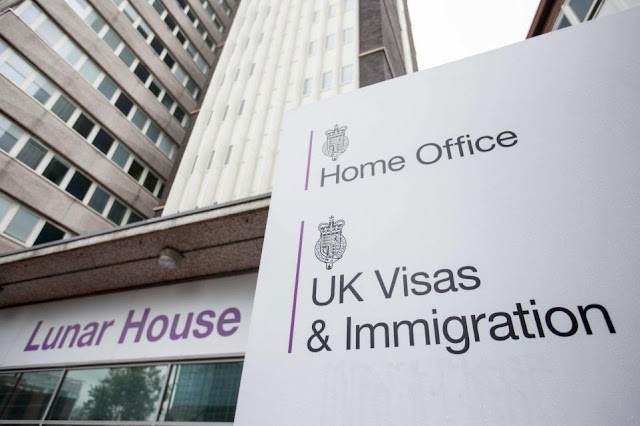In a significant shift in the United Kingdom’s immigration landscape, the number of visas issued to foreign nationals for work, study, family reunification, and humanitarian purposes has plummeted, according to newly released Home Office data. The figures reveal a 32 percent drop in entry visas granted in the year ending June 2025, with a total of 834,977 visas issued compared to 1.23 million in the previous 12 months. This marks the lowest annual total since September 2021, when 802,415 visas were granted. The steep decline is largely attributed to a dramatic reduction in work-related visa applications, alongside notable decreases in study and family visas, reflecting the impact of stringent policy changes introduced by the previous Conservative government and continued under the current administration.
Breakdown of Visa Categories
The Home Office data provides a detailed breakdown of the visa categories affected by this downturn. Work-related visas saw the most substantial decline, nearly halving from 545,855 in the year to June 2024 to 286,071 in the most recent 12 months—a staggering 48 percent drop. This significant reduction is particularly evident in the health and care sector, where visas issued to workers and their families fell by an astonishing 77 percent, from 267,348 to just 61,901. This decline is largely attributed to new restrictions that prohibit overseas care workers from bringing dependants, a policy change implemented in early 2024.
Study visas also experienced a notable decrease, falling 18 percent from 530,312 to 435,891. A particularly sharp drop was observed in visas issued to dependants of international students, which plummeted by 81 percent from 94,204 to 17,804. This drastic reduction is linked to new rules that restrict international students from bringing family members to the UK, a measure aimed at curbing what the government described as unsustainable levels of migration.
Family visas, which allow foreign nationals to join relatives in the UK, also saw a decline, dropping 15 percent from 83,912 to 70,961. Humanitarian and resettlement schemes, which include pathways for individuals fleeing conflict or persecution, were not spared from the downturn. Visas issued under the Ukraine schemes, designed to provide refuge for those affected by the ongoing conflict in Ukraine, fell by 48 percent to 14,216. Similarly, visas granted to British National Overseas (BNO) status holders from Hong Kong dropped by 47 percent to 11,804, while those issued under the EU Settlement Scheme decreased by 34 percent to 9,357. Additionally, 3,640 visas were issued to dependants joining or accompanying others, and 3,037 were granted under other settlement programs.
Policy Changes Driving the Decline
The sharp reduction in visa issuances is widely seen as a direct consequence of migration policy reforms introduced by the previous Conservative government in early 2024. These reforms were designed to address what the government described as unprecedented levels of legal migration, which had reached record highs in previous years. Key among these changes were restrictions on international students’ ability to bring family members to the UK, a measure aimed at reducing the overall number of dependants entering the country. Additionally, a ban on overseas care workers bringing dependants was implemented, targeting a sector that had previously been a significant driver of work-related migration.
The health and care sector, in particular, has been profoundly affected by these changes. The UK has long relied on overseas workers to fill staffing shortages in its National Health Service (NHS) and social care system. However, the new restrictions have made the UK a less attractive destination for these workers, many of whom previously brought their families with them. The 77 percent drop in visas issued to health and care workers and their families underscores the impact of these policies, raising concerns about potential labor shortages in a sector already under strain.
Dr. Ben Brindle, a researcher at the Migration Observatory at the University of Oxford, commented on the scale of the decline, noting that it was made possible by the exceptionally high levels of migration in previous years. “The steep decline we’re seeing now is a reflection of how high migration numbers were before these restrictions were introduced,” he said. “It’s possible we’ll see further declines in the coming months – though probably smaller ones – as the data catches up with more recent restrictions, such as the closure of the care worker route to overseas recruitment.”
Government’s Stance on Migration Control
The current Labour government, led by Home Secretary Yvette Cooper, has embraced the downward trend in visa issuances as evidence of its commitment to reducing legal migration. In a statement, Cooper emphasized the government’s goal of bringing migration levels “back under control.” She highlighted the introduction of stronger visa controls and higher skill requirements, as outlined in a recent government White Paper, as key measures expected to further reduce visa numbers in the coming years. “These policies are designed to ensure that migration serves the UK’s economic and social needs while maintaining public confidence in the immigration system,” Cooper said.
The government’s focus on tightening immigration rules reflects a broader political shift in the UK, where migration has long been a contentious issue. Public opinion on immigration has often been polarized, with some advocating for stricter controls to reduce pressure on public services, housing, and infrastructure, while others argue that immigration is essential to address labor shortages and support economic growth. The recent visa data suggests that the government is prioritizing the former, aligning with promises made during recent election campaigns to reduce net migration.
Implications for the UK Economy and Society
The sharp decline in visa issuances raises important questions about the potential economic and social consequences of these policy changes. The health and care sector, which has been hit hardest by the reduction in visas, is already grappling with chronic staffing shortages. The NHS and social care providers have warned that further restrictions on overseas recruitment could exacerbate these challenges, potentially compromising the quality of care for patients and residents. The ban on care workers bringing dependants, in particular, has been criticized by industry leaders, who argue that it deters skilled workers from choosing the UK as a destination.
Similarly, the reduction in study visas and student dependant visas could have implications for the UK’s higher education sector, which relies heavily on international students for revenue. International students contribute billions of pounds annually to the UK economy through tuition fees and living expenses. The restrictions on bringing dependants may make the UK a less attractive destination for prospective students, potentially leading universities to face financial pressures in the coming years.
The decline in humanitarian visas, particularly those related to the Ukraine and Hong Kong schemes, also raises questions about the UK’s commitment to providing refuge for those in need. The Ukraine schemes, introduced in response to Russia’s invasion of Ukraine in 2022, were initially hailed as a compassionate response to a global crisis. However, the significant drop in visas issued under these schemes suggests a scaling back of such efforts, possibly due to logistical challenges or shifting political priorities.
Broader Context of Migration Trends
The decline in visa issuances must be understood within the broader context of global and domestic migration trends. The UK has experienced fluctuating migration patterns in recent years, influenced by factors such as Brexit, the COVID-19 pandemic, and geopolitical events. The post-Brexit immigration system, which introduced a points-based framework, was designed to prioritize high-skilled workers and reduce low-skilled migration. However, sectors like health and care, which rely on workers who may not meet the “high-skilled” threshold, have struggled to adapt to these changes.
The pandemic also played a significant role in shaping migration flows, with travel restrictions and economic uncertainty leading to a temporary dip in visa applications in 2020 and 2021. The subsequent rebound in 2022 and 2023 saw migration reach record highs, driven by demand for workers in key sectors and the influx of refugees from conflict zones. The current decline, therefore, represents a correction from these peaks, but it also reflects a deliberate policy shift toward greater restriction.
Globally, many developed countries are grappling with similar challenges as they balance the need for skilled labor with public concerns about immigration levels. In the European Union, for example, member states have introduced measures to attract skilled workers while tightening rules for asylum seekers and low-skilled migrants. The UK’s approach, however, stands out for its rapid implementation of restrictive policies, particularly in the health and care sector.
Public and Political Reactions
The decline in visa issuances has sparked a range of reactions from stakeholders across the political spectrum. Pro-immigration advocates argue that the restrictions are shortsighted and risk undermining the UK’s economic competitiveness and humanitarian commitments. They point to the contributions of migrant workers and students to the economy and society, warning that overly restrictive policies could lead to labor shortages and reduced cultural diversity.
On the other hand, those in favor of stricter immigration controls view the decline as a positive step toward addressing public concerns about high migration levels. They argue that reducing the number of dependants entering the UK will alleviate pressure on public services, such as schools and healthcare, and help manage population growth in urban areas.
Political parties have also weighed in on the issue. The Labour government has sought to strike a balance, emphasizing its commitment to reducing migration while acknowledging the need for a fair and effective immigration system. Opposition parties, including the Conservatives and Reform UK, have called for even tougher measures, arguing that the current decline is not sufficient to address long-term challenges.
Looking Ahead
As the UK continues to refine its immigration policies, the trajectory of visa issuances will likely remain a closely watched indicator of the government’s priorities. Dr. Brindle’s prediction of further, albeit smaller, declines in the coming months suggests that the full impact of recent policy changes has yet to be fully realized. The closure of the care worker route to overseas recruitment, for example, is expected to further reduce visa numbers in the health and care sector.
At the same time, the government faces the challenge of addressing labor shortages in key industries while maintaining public support for its immigration policies. The introduction of higher skill requirements, as outlined in the White Paper, may help attract talent in sectors such as technology and engineering, but it risks leaving gaps in lower-skilled roles that have traditionally been filled by migrant workers.
The decline in humanitarian visas also raises questions about the UK’s role on the global stage. As conflicts and crises continue to drive displacement worldwide, the government will need to balance its domestic priorities with its international obligations to provide refuge for those in need.
In conclusion, the 32 percent drop in visas issued to foreign nationals in the year to June 2025 reflects a significant shift in the UK’s immigration landscape. Driven by tighter restrictions on work, study, and family visas, the decline underscores the government’s commitment to reducing legal migration. However, the long-term consequences of these policies remain uncertain, with potential impacts on the economy, public services, and the UK’s reputation as a destination for global talent and those seeking refuge. As the government navigates these challenges, the balance between control and compassion will remain a defining issue in the years ahead.






